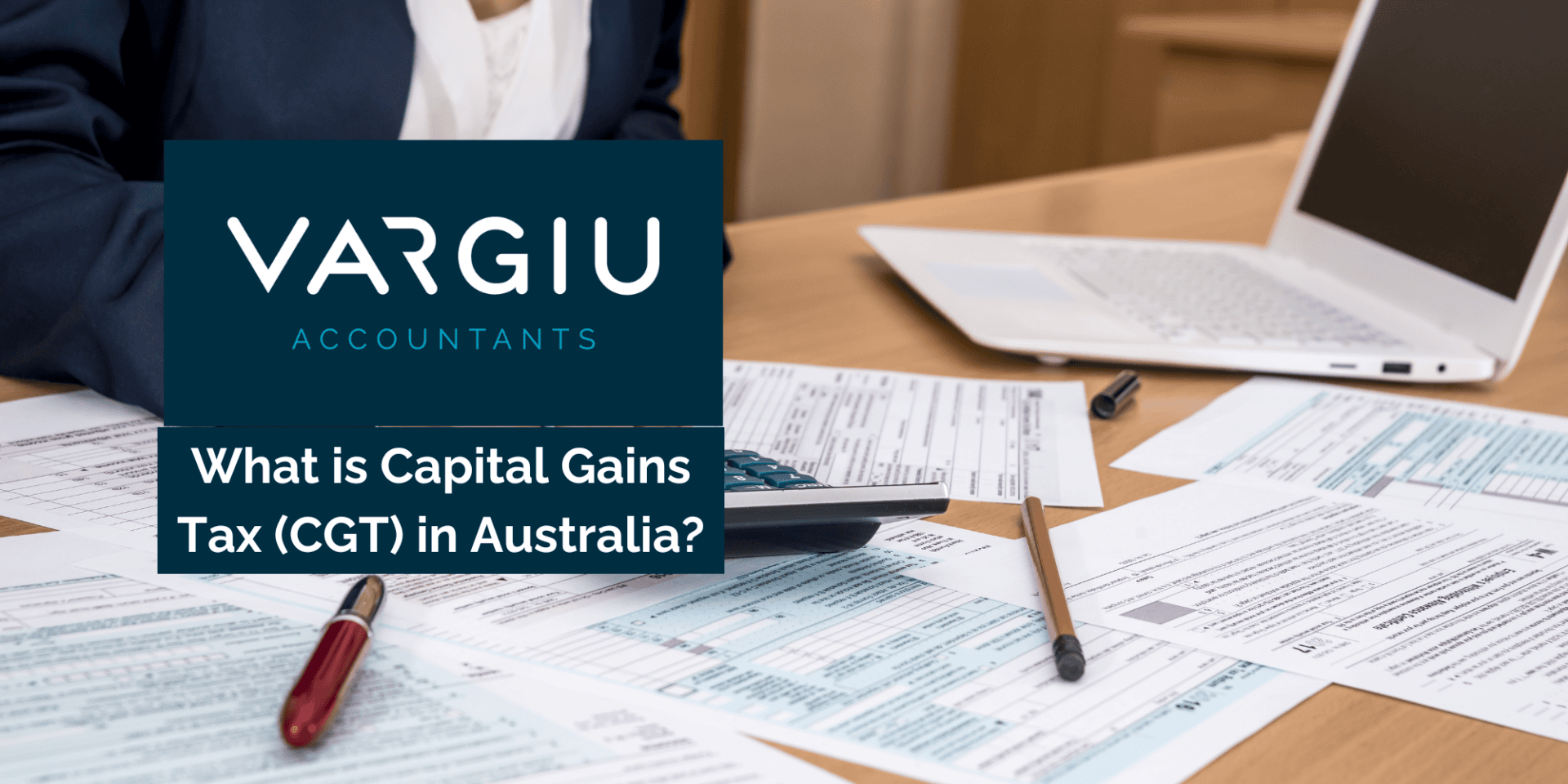What is Capital Gains Tax (CGT) in Australia?

Capital Gains Tax (CGT) is a tax on the profit you make when you sell certain assets. Often referred to as a separate tax, CGT is part of your income tax. It’s the tax on the capital gain, which is the difference between what you paid for an asset and what you sold it for. Understanding CGT is vital to sound financial planning, whether you’re selling shares, an investment property or valuable collectables.
How is CGT Calculated?
CGT is calculated in the following steps:
- Calculate the Capital Gain or Loss: To calculate your capital gain, subtract the cost base (what you paid for the asset, including acquisition and holding costs) from the sale price. If positive, you’ve made a capital gain; if negative, it’s a capital loss.
- Apply Capital Losses: If you have any capital losses from this year or previous years, you can use them to offset your capital gains. This can reduce the amount of CGT you owe.
- CGT Discount: If you’ve held the asset for over 12 months, you’re eligible for a 50% CGT discount (for individuals). This means only half of the capital gain is taxable. But this discount doesn’t apply to companies which pay a flat 30% on net capital gains.
- Add to Taxable Income: The discounted capital gain is added to your taxable income for the year. The actual tax you pay will be your marginal tax rate.
For example, if you bought shares for $10,000 and sold them two years later for $15,000, your capital gain would be $5,000. After applying the 50% discount, $2,500 would be added to your taxable income, and you’d pay tax on that amount according to your tax bracket.
Assets that are subject to CGT
Most assets are subject to CGT when you dispose of them, including:
- Real Estate: Investment properties, land and holiday homes are all subject to CGT. But your primary residence is exempt unless you’ve used it to produce income.
- Shares and Investments: Profits from the sale of shares, bonds or other financial investments are taxable under CGT.
- Collectables: Items like artwork, jewellery and rare coins purchased for over $500 are subject to CGT.
- Personal Use Assets: Assets like boats and furniture costing over $10,000 may also be subject to CGT.
- Intangible Assets: This includes business goodwill and other intangible assets with value.
Some exemptions, including your main residence, cars, and assets acquired before 20 September 1985, are not subject to CGT.
How CGT works with Investment Properties
Investment properties are a common source of capital gains, and the rules around them can be tricky. When you sell an investment property, CGT applies to your profit. The key to minimising your CGT is understanding the cost base and how expenses are treated.
For example, only costs incurred after the property was first available for rent can be included in the cost base. Any expenses related to the period when the property was your principal residence do not count towards reducing your capital gain.
Vargiu Accountants Case Study: Minimising CGT on an Investment Property
At Vargiu Accountants, we recently helped a client sell their investment property. They purchased the property in 2017 as their primary residence and rented it out in 2019. When they sold the property, it had appreciated significantly, and it was a CGT event.
Here’s how we minimised their CGT:
- Valuation at Time of Rental: Instead of using the original purchase price as the cost base, we used the property's market value when it was first rented out in 2019. Since the property had increased in value by nearly 10% between 2017 and 2019, this strategy significantly reduced the capital gain subject to tax.
- Depreciation and Capital Expenses: We ensured that only expenses and depreciation claims that occurred after the property was available for rent were applied to the cost base. This attention to detail further minimised their CGT.
The result was a significant saving in CGT for the client. So, planning and professional advice are critical regarding investment properties.
Are you selling Assets Affected by CGT? Speak to a trusted Melbourne Business Accountant today.
Capital Gains Tax is an important consideration when selling assets in Australia, especially for those with investment properties. By understanding how CGT works, which assets are affected, and the strategies to minimise your tax liability, you can make better decisions and save a lot of money. At Vargiu Accountants, we specialise in helping our clients with these complex tax issues so they are compliant and maximise their outcomes.
If you’re considering selling an asset or have questions about CGT, please contact us for tailored advice.
